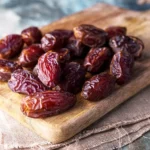Table of Contents
It’s a familiar scenario: you’re on the hunt for a new pair of pants, and all the pairs in your size have different types of zippers. You wonder if there’s an easy way to tell which one is right for you—and if so, what makes each zipper type unique? Luckily, we’ve put together some helpful information about metal YKK zippers that will help you choose the best option for your needs.
The Metal YKK zippers is made of aluminum, while the coil version is made up of a thin rubber wire.
The metal version of the YKK zipper is made of aluminum, while the coil version is made up of a thin rubber wire. Because it’s stronger than its counterpart, this type of zipper tends to be more expensive and durable. It also has less give than its counterpart–which means that if you’re looking for something flexible and lightweight (like luggage), then you should choose a coil zipper instead.
Both metal and coil zippers are used in a variety of industries including fashion, sports and apparel.
Both metal and coil zippers are used in a variety of industries including fashion, sports and apparel. Metal zippers are often used in the fashion industry because they have a stylish look and feel to them. Coil zippers are more commonly used in the sports and apparel industry because they’re durable enough to withstand long hours of activity while still being comfortable enough for anyone who wears them.
While both types of YKK zippers can be found across various industries today, there are some instances where one type might be better suited than another:
The main difference between these two types of zippers is their durability.
Metal YKK zippers are a little bit more durable than coil YKK zippers. They’re also more flexible, which makes them easier to sew into your clothing or bags. Coil YKK zippers tend to be stronger, so if you’re looking for something that will last longer and hold up under heavy use, metal might be the way to go.
We have put together some useful information about metal YKK zippers; click through to learn more!
The metal YKK zipper is made up of aluminum, while the coil version is made up of a thin rubber wire. Both types are used in a variety of industries including fashion, sports and apparel.
Both metal and coil zippers will hold together your garments, but the one you choose depends on your needs.
Both metal and coil zippers will hold together your garments. However, the one you choose depends on your needs.
- Coil zippers are more durable than metal ones. They can withstand more stress than a standard metal zipper and still function properly. This makes them ideal for any garment that’s likely to be worn or washed frequently (such as jeans).
- On the other hand, coil zippers are also more expensive than their metallic counterparts because they’re made up of multiple interlocking coils instead of just one piece of metal–which means they take longer to produce in bulk quantities and require special machinery during assembly. As such, they tend not to be used as often on mass-produced items like jeans but rather found in luxury clothing lines where quality matters most over price point (e.g., Prada).
- In addition to costing more money upfront, installing a coil YKK zipper will require some extra steps beyond simply sewing two pieces together: firstly because it has multiple parts which need assembly before installation; secondly because each coil must then be lined up within itself when sewn together so that nothing gets caught inside while being pulled open/closed repeatedly over time after being installed onto fabric surfaces whose edges may fray slightly every time something is put through them repeatedly (e g., pants legs).
Conclusion
We hope that this article has helped you understand the differences between metal YKK zippers and coil YKK zippers. If you have any questions about what type of zipper might be best for your project, please contact us! We would love to hear from you and help with any problems or concerns that arise during production.

